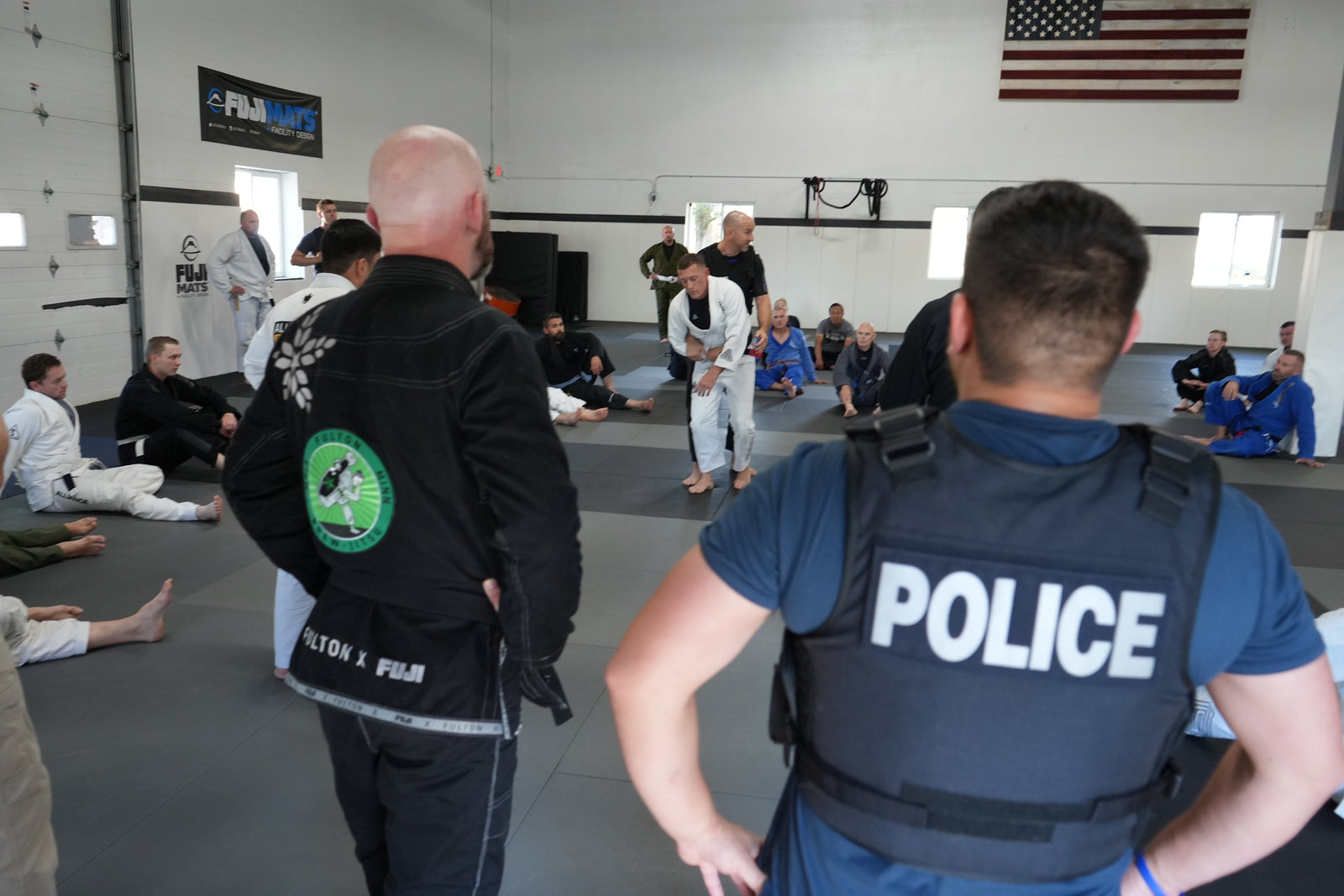Stop Watering Down Your Jiu Jitsu Training for the "Lowest Common Denominator"

We know fundamental Jiu Jitsu should be the foundation of police use-of-force training. However, there's a trend we've seen over the years that devalues the art by watering down its techniques to teach to the people commonly known in our industry as the "lowest common denominator." These are the officers we've deemed incapable of performing techniques due to a number of factors - usually their negative attitude and lack of fitness and/or athletic abilities. As a result, instructors will provide watered-down versions of sound techniques to appeal to a small percentage of people who won't ever be consistent in their training or care to learn. This greatly impacts those who do want to learn and can actually set them up for failure.
Here are a few major reasons why compromising your Jiu Jitsu for those who aren't consistent in their training or commitment can be detrimental.
It Creates a False Sense of Competence and Confidence
When techniques are watered down, students may achieve them more quickly, giving them an inflated sense of accomplishment. This can be dangerous. A false sense of skill can lead to overconfidence, which in a real-world self-defense scenario could obviously have severe consequences.
Missing Details Lead to Increased Risk of Injury
Jiu Jitsu's techniques are designed with important details. Techniques are crafted to ensure both effectiveness and safety. However, a watered-down technique might lack these details. Inconsistent or inadequately trained students trying to replicate these can easily injure themselves or their sparring partners.
It Diminishes the Art
For those truly dedicated to learning Jiu Jitsu, seeing its techniques diluted can be disheartening. Training Jiu Jitsu isn't just about learning control and defense techniques. It's also about dedication, discipline, and a commitment to continuous learning. Offering a "quick fix" approach tarnishes its value and reputation.
It Prevents Genuine Progress
Real progress in Jiu Jitsu, like any other discipline, comes from consistent training. By offering shortcuts, we rob students of the opportunity to genuinely grow and develop their skills.
While it's essential to be adaptive and accommodate different learning and physical abilities, it's crucial not to compromise on the core techniques and principles of Jiu Jitsu. Instructors have to find a balance between being supportive and understanding, but also upholding integrity. Students, in turn, should be encouraged to understand that the value of Jiu Jitsu isn't in quick wins but in the journey of ongoing training and making Jiu Jitsu a lifestyle, not just another DT class.



